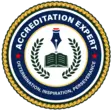- Home
- About AEC
- Our Services
Accreditatio
Accreditatio 2
Accreditatio 3
- Accreditation
- Risk Management
- Podcast
- Articles
- Resources
- Contact Us
- Home
- About Us
- Our Services
- Accreditation Approval
- All State Approval
- State Authorization BPPE
- Accreditation Compliance & Post-Survey Corrective Action
- Accreditation-Bureau Site Visit
- Board Governance
- Strategic Planning in Higher Education
- Continuing and Higher Education Accreditation
- Accreditation process
- Self Evaluation (Self-Study)
- Curriculum Development
- Veterans Approval G.I-bill
- I-Train Approval
- International Student (SEVP)
- Equal Canada Accreditation
- Accreditation
- Risk Management
- Podcast
- Articles
- Resources
- Contact Us
International Student (SEVP) - (I-20)

If you have a vision of setting up an ESL language school in the United States, the steps involved are comparable to those of opening a private career school. However, the process will be more time-consuming if you plan to enroll students from abroad.
Schools classified as "I-20" have the authorization to enroll international students and issue I-20 visas (F-1s or M-1s), allowing them to enter the United States. Since 9/11, the U.S. Department of Homeland Security, specifically the U.S. Immigration and Customs Enforcement (ICE), has been responsible for international student admissions and oversees the process.
To obtain I-20 status, an ESL school must be approved to operate within the state where it is situated and holds accreditation from a nationally recognized accrediting agency.
In the United States, all schools that enroll non-immigrant students, both male and female, must be certified by the Student and Exchange Visitor Program (SEVP). Schools seeking certification submit a petition known as Form I-17, "Petition for Approval of School for Attendance by Non-immigrant Student," through the Student and Exchange Visitor Information System (SEVIS).
What is the certification process for SEVP?
Certification involves schools undergoing a review by SEVP, a division of U.S. Immigration and Customs Enforcement (ICE), to obtain authorization from the Department of Homeland Security (DHS) for enrolling non-immigrant students. This certification process determines whether the school is approved or denied certification.
Please note: Certification does not apply to J-1 exchange visitor programs, as the Department of State handles the authorization for J-1 non-immigrants separately.
Once certified, the school gains access to SEVIS and can issue Forms I-20, known as "Certificate of Eligibility for Student Status," to prospective nonimmigrant students. To maintain certification, the school must adhere to SEVP policies and fulfill the record-keeping and reporting requirements outlined in 8 CFR 214.3.
SEVP is the sole governmental entity authorized to certify schools for issuing Forms I-20.
The following types of schools are considered academic institutions and may be approved for non-immigrant student attendance under section 101(a)(15)(F)(i) of the Immigration and Nationality Act (INA):
- Colleges or universities that grant recognized bachelor's, master's, doctor's, or professional degrees.
- Community colleges or junior colleges offering liberal arts or professional instruction and granting recognized associate degrees.
- Seminaries. · Conservatories.
- Public high schools.
- Private elementary, middle, and/or high schools.
- Institutions providing language training, liberal arts or fine arts instruction, professional instruction, or instruction or training in multiple disciplines.
The following types of schools are considered vocational or non-academic institutions and may be approved for non-immigrant student attendance under section 101(a)(15)(M)(i) of the INA:
- Community colleges or junior colleges offering vocational or technical training and granting recognized associate degrees.
- Vocational high schools.
- Schools providing vocational or non-academic training other than language training.
The Accreditation of English Language Training Programs Act (January 2018) :
Non-immigrant students attending an English Language training program of study (ESL program) should note that a new law has taken effect. In accordance with the Accreditation Act, all ESL programs of study that are SEVP-certified must either possess or have applied for accreditation before December 14, 2013, by a regional or national accrediting agency recognized by the Department of Education.
In accordance with the Accreditation Act, SEVP is examining two types of ESL programs of study for compliance with the Accreditation Act:
- Stand-alone ESL schools whose officials have indicated on the school’s Form I-17, “Petition for Approval of School for Attendance by Nonimmigrant Student,” the intention to offer only ESL programs of study
- “Combined schools” whose officials have indicated on the school’s Form I-17 that the school offers an ESL program of study, as well as other programs of study (either contracts out the ESL program of study or wholly owns and operates the ESL program of study under the institution’s governance)
You can access the ICE document containing the comprehensive list of required items for submitting the I-17 Form by clicking on the following link:
State Approval Readines
If you're new to state approval, start with our initial questionnaire. This provides a comprehensive understanding of your organization's readiness for state approval.
Our goal is to help you achieve successful approval from your state and ensure the process is as efficient and stress-free as possible for you and your team.
“Accreditation Expert Consulting Team”
Request call back
Our goal is to help you find exactly what you need and explore your options.












